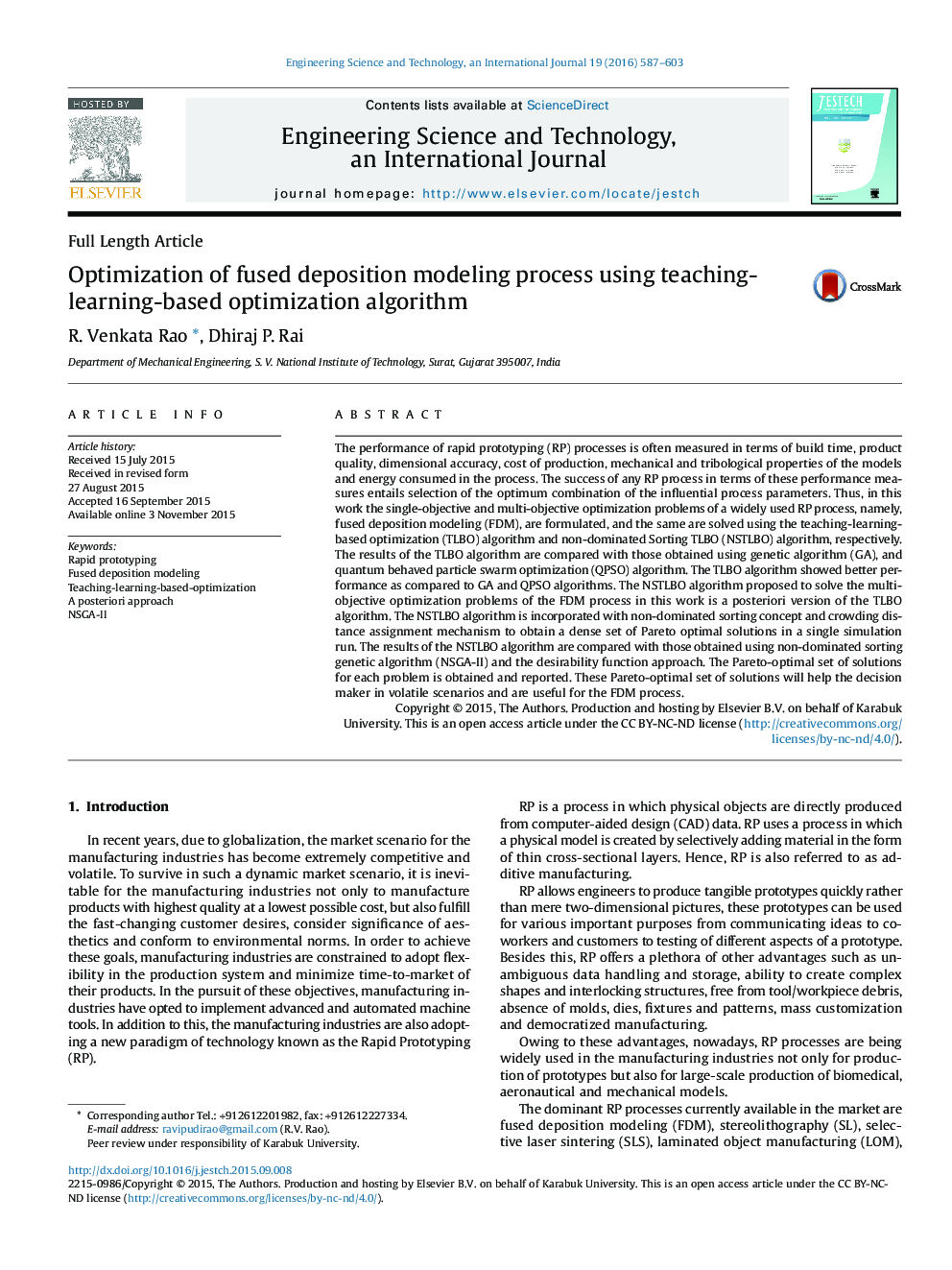| کد مقاله | کد نشریه | سال انتشار | مقاله انگلیسی | نسخه تمام متن |
|---|---|---|---|---|
| 477579 | 700143 | 2016 | 17 صفحه PDF | دانلود رایگان |
The performance of rapid prototyping (RP) processes is often measured in terms of build time, product quality, dimensional accuracy, cost of production, mechanical and tribological properties of the models and energy consumed in the process. The success of any RP process in terms of these performance measures entails selection of the optimum combination of the influential process parameters. Thus, in this work the single-objective and multi-objective optimization problems of a widely used RP process, namely, fused deposition modeling (FDM), are formulated, and the same are solved using the teaching-learning-based optimization (TLBO) algorithm and non-dominated Sorting TLBO (NSTLBO) algorithm, respectively. The results of the TLBO algorithm are compared with those obtained using genetic algorithm (GA), and quantum behaved particle swarm optimization (QPSO) algorithm. The TLBO algorithm showed better performance as compared to GA and QPSO algorithms. The NSTLBO algorithm proposed to solve the multi-objective optimization problems of the FDM process in this work is a posteriori version of the TLBO algorithm. The NSTLBO algorithm is incorporated with non-dominated sorting concept and crowding distance assignment mechanism to obtain a dense set of Pareto optimal solutions in a single simulation run. The results of the NSTLBO algorithm are compared with those obtained using non-dominated sorting genetic algorithm (NSGA-II) and the desirability function approach. The Pareto-optimal set of solutions for each problem is obtained and reported. These Pareto-optimal set of solutions will help the decision maker in volatile scenarios and are useful for the FDM process.
Journal: Engineering Science and Technology, an International Journal - Volume 19, Issue 1, March 2016, Pages 587–603
